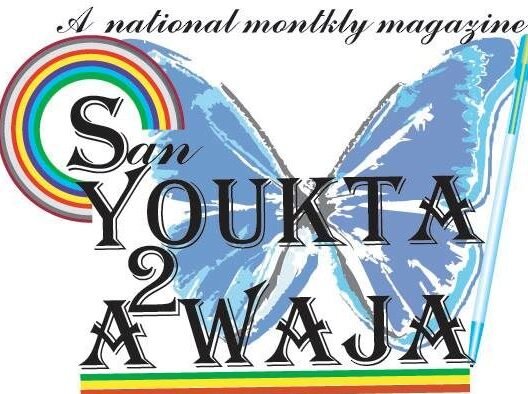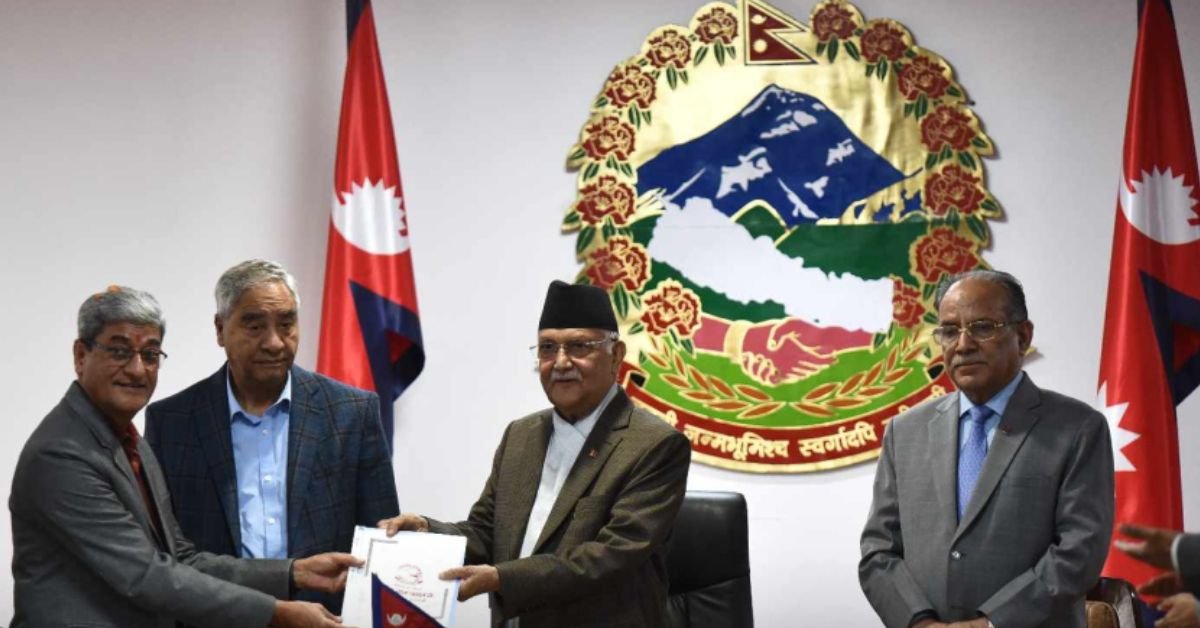Kathmandu, The parliamentary Law and Human Rights Committee has convened a meeting on Thursday to finalize the bill amending the Commission on Investigation of Disappeared Persons, Truth and Reconciliation Act, 2071. This meeting was called after a working group comprising the major three political parties reached a consensus on the main contentious issues. The committee plans to present the bill to the House on the same day.

Report to be Submitted to Party Leaders
The working group, formed on Ashar 13 and including leaders from the Congress, UML, and Maoist parties, submitted its consensus report to the top leaders of the three parties on Wednesday. Prime Minister and UML Chairman KP Sharma Oli, Congress President Sher Bahadur Deuba, and Maoist Chairman Pushpa Kamal Dahal briefly discussed the report.
The leaders agreed to finalize the long-delayed transitional justice process based on the report. Following their agreement, the report was made public. Prime Minister Oli described Wednesday’s agreement as a milestone for the peace process, stating, “There are no legal hurdles left to conclude the truth and reconciliation work.”
Historical Context
Following the decade-long armed conflict, Nepal’s peace process focused on four main tasks: army integration, constitution drafting, state restructuring, and managing transitional justice. While the first three tasks have been completed, transitional justice has been stalled for 18 years due to political disagreements. Now, there is political consensus to pass the bill within the current parliamentary session. “We will present the bill to the House on Thursday,” said Mahesh Bartaula, a member of the task force and UML’s chief whip. “It will be passed in the next parliamentary meeting on the 29th and sent to the National Assembly.”
Finalization and Implementation
The National Assembly is expected to pass it within a week, and the President will certify it in the first week of Bhadra. Once the bill becomes law, the recommendation committee formed under former Chief Justice Om Prakash Mishra will recommend officials for the Truth and Reconciliation Commission and the Commission on Investigation of Disappeared Persons.
Victims’ Perspectives
Conflict victims acknowledged that the political agreement in the bill is largely victim-friendly but expressed dissatisfaction with some provisions. “The bill includes good and new aspects, such as categorizing crimes and establishing units for compensation and truth-seeking. It also allows appeals in the Supreme Court against special court decisions,” said Suman Adhikari, founder president of Conflict Victims’ Common Platform. “However, the categorization of murder into ordinary and serious is unsatisfactory, and the provision of only 25% punishment for serious human rights violations does not align with national and international laws.”
Contentious Definitions and Provisions
The definition of “serious human rights violations” in the bill has been a contentious issue. It includes four types of crimes committed by conflicting parties during the armed conflict, with “rape or serious sexual violence” listed first. The previous Act defined serious human rights violations as actions planned against unarmed individuals or communities during the armed conflict, including “rape and sexual violence.” The bill presented to Parliament included sexual violence as a human rights violation and rape as a serious human rights violation.
Victims have welcomed the agreement on sexual violence. “This is a positive step from a policy perspective,” said Devi Khadka, coordinator of the network and a member of the Constituent Assembly. “While there are complexities in implementation, I hope the leadership will remain honest in understanding these complexities and deliver justice.”
The task force agreed to classify as serious human rights violations the deliberate or arbitrary killing of unarmed individuals, enforced disappearances, and inhumane or cruel torture by conflicting parties during the armed conflict. The previous bill used terms like “cruel torture and merciless killing,” “enforced disappearance,” and “inhumane or cruel torture.” The 2071 Act included “murder, abduction, hostage-taking, enforced disappearance, mutilation or disability, physical or mental torture, looting, seizure, destruction, or arson of public or private property, forced eviction, or any other inhumane acts contrary to international human rights or humanitarian law” as serious human rights violations.
The new bill differentiates between “human rights violations” and “serious human rights violations.” The task force agreed to define “human rights violations” as any act contrary to Nepalese law, international human rights, or humanitarian law, except for serious human rights violations, targeted at unarmed individuals or communities by conflicting parties during the armed conflict.
The task force defined enforced disappearances as instances where individuals remain missing due to actions by conflicting parties during the armed conflict.
The bill, amended in accordance with the Supreme Court’s directive not to grant amnesty to those involved in serious human rights violations, defines other crimes contrary to prevailing laws as human rights violations. The state will facilitate reconciliation between perpetrators and victims, but victims’ constitutional right to seek judicial redress will remain protected.
The report stipulates, “The commission will refer cases involving serious human rights violations that do not qualify for amnesty under sections 22 and 26 of the Act to the Attorney General. It will inform victims or their representatives of other human rights violations.”
Additional Provisions
The bill includes provisions for individuals affected by the armed conflict, including security personnel and their families who were killed, injured, or disabled. The commission will recommend necessary relief and support to the government in recognition of their contributions. There is also a legal agreement to provide relief and support to individuals and families affected by explosive devices used during and after the conflict. The term “ex-combatants” will be used to address the issue of child soldiers involved in the armed conflict.

